This content is restricted to subscribers
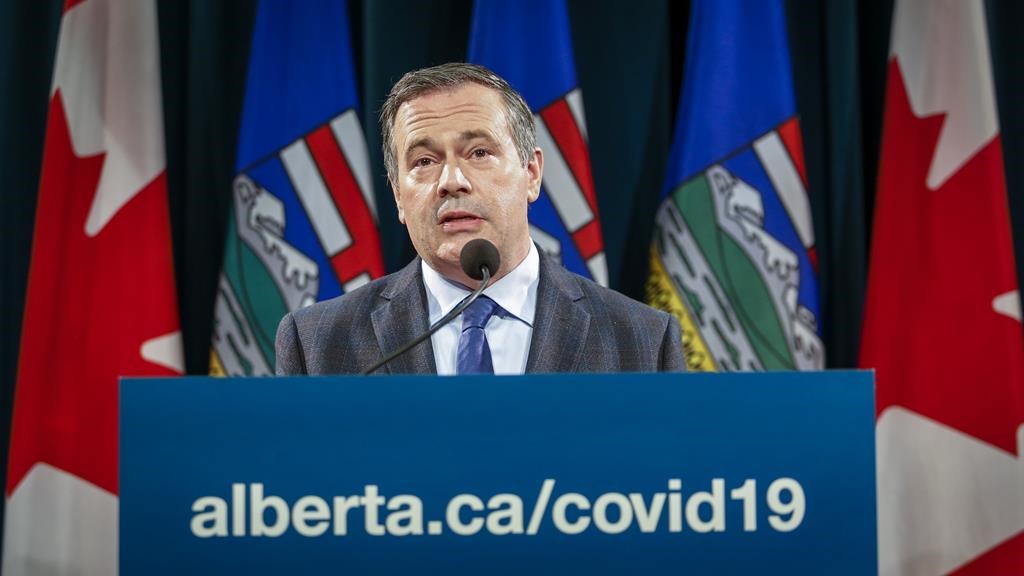
The views, opinions and positions expressed by columnists and contributors are the author’s alone. They do not inherently or expressly reflect the views, opinions and/or positions of our publication.

This content is restricted to subscribers
The views, opinions and positions expressed by columnists and contributors are the author’s alone. They do not inherently or expressly reflect the views, opinions and/or positions of our publication.
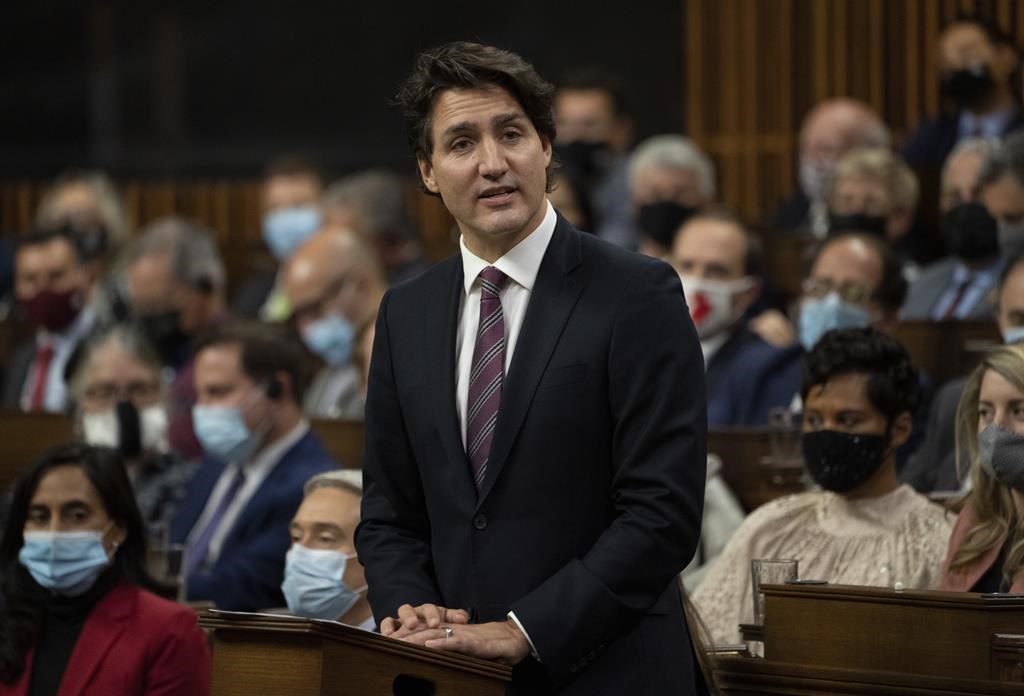
Whenever I advise a politician, I always make a prediction.
“I predict you will have a long and prosperous political career,” I’d say, “if you don’t make any predictions.”
Other advice I give: don’t ever, ever answer hypothetical questions about the future, because they are (a) hypothetical and (b) about the future, which hasn’t happened yet.
The most famous cautionary tale about political predictions comes from 1948. (I wrote all about it in one of my books, which I predict you will now want to buy.)
1948 was a U.S. presidential election year. That year, Harry S. Truman was the Democratic candidate and the incumbent. Thomas E. Dewey was the Republican standard-bearer, and the Governor of New York.
The Chicago Daily Tribune was pretty pro-Republican, and regarded Truman as “nincompoop,” quote unquote. Their Washington correspondent filed his election night story early – too early – and the resulting Daily Tribune headline forever became the stuff of legend: DEWEY DEFEATS TRUMAN, it hollered.
Except, he didn’t. Truman won a massive electoral college victory. So much for political predictions.
But politicians still make ‘em. During the pandemic era, in Canada, we’ve been on the receiving end of not a few, too. Remember a cowboy-hatted Alberta Premier Jason Kenney boasting at the 2021 Calgary Stampede that the province would experience the “best Summer ever”? His party even sold ball caps bearing that prediction, so confident were they.
Well, no.
Covid 19 went thereafter on a rampage in my home province. So, in September, Kenney apologized: “It is now clear that we were wrong. And for that, I apologize,” he said. But polls suggest Albertans have not yet forgiven him.
And, to be fair, he’s not alone in getting things wrong. Prime Minister Justin Trudeau, for example, stepped into the minefield that is the soothsaying business in November 2020. The pandemic’s almost over, Trudeau suggested: “We’re going to need to have to do this for another few weeks, for another few months, and we can begin to see the other side of this.”
A “few weeks”? Nope. It’s much more than a year later, and the number of infected Canadians is worse than it’s ever been. With no end in sight.
But Messrs. Kenney and Trudeau aren’t alone. The leading American infectious disease specialist, Dr. Anthony Fauci, actually forecast the end of handshakes: “I don’t think we should ever shake hands ever again, to be honest with you.”
That one didn’t come to pass, either. Many people still do, although perhaps not as much.
Other predictions by politicos and polling expert types: birthday candles would never again be blown out. Office spaces would never be used again, or not like they once were. Samples in cosmetic stores: gone. Business attire: toast. Air travel: buh-bye. Oh yes, and cities: cities, along with all that other stuff, was declared null and virus-voided. By some supposedly-smart political people, too.
A few pandemic prognostications were crazier than an outhouse rodent, and everyone knew at the time. Witness President Donald Trump’s firm prediction that the virus would away by the time the weather got warmer.
The virus didn’t go away, however. But Donald’s presidency sure did.
Political predictions are risky, risky business. We ink-stained wretches make preposterous predictions all the time, and we rarely get called on it. But woe unto the politician – cf. Trump, Kenney et al. – who has a muddied crystal ball. They’ll never hear the end of it, if they get things wrong.
So, no predictions, here, about when the pandemic will end, whether another variant is heading our way, or whether the Maple Leafs will ever actually win something (anything).
Instead, I verily predict that this column will end right about here.
(And the Leafs will never win.)
The views, opinions and positions expressed by columnists and contributors are the author’s alone. They do not inherently or expressly reflect the views, opinions and/or positions of our publication.
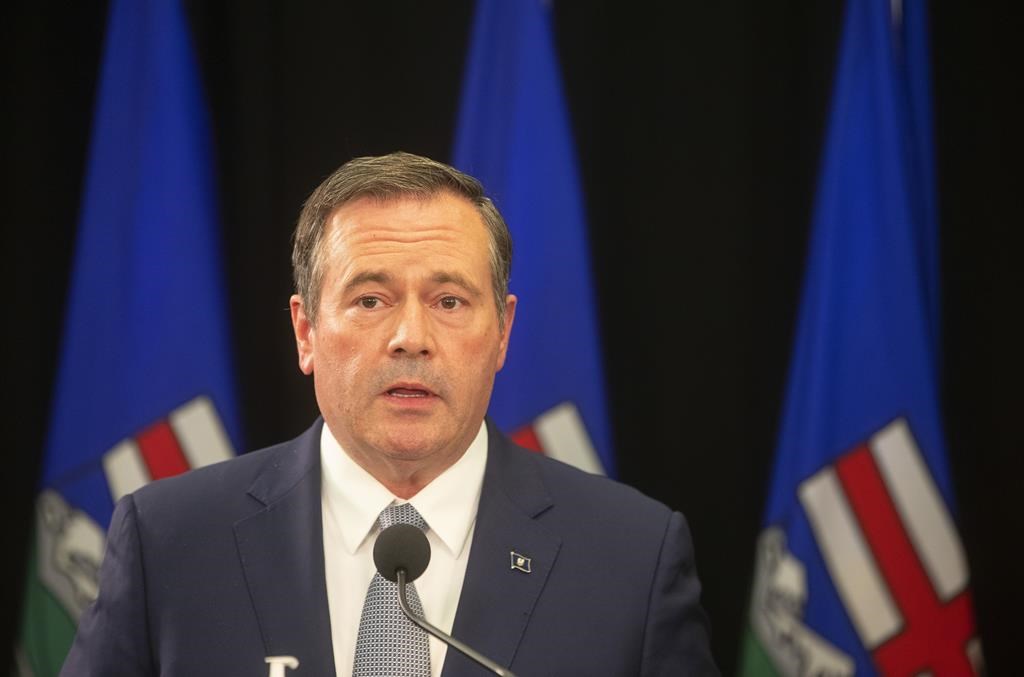
This content is restricted to subscribers
The views, opinions and positions expressed by columnists and contributors are the author’s alone. They do not inherently or expressly reflect the views, opinions and/or positions of our publication.
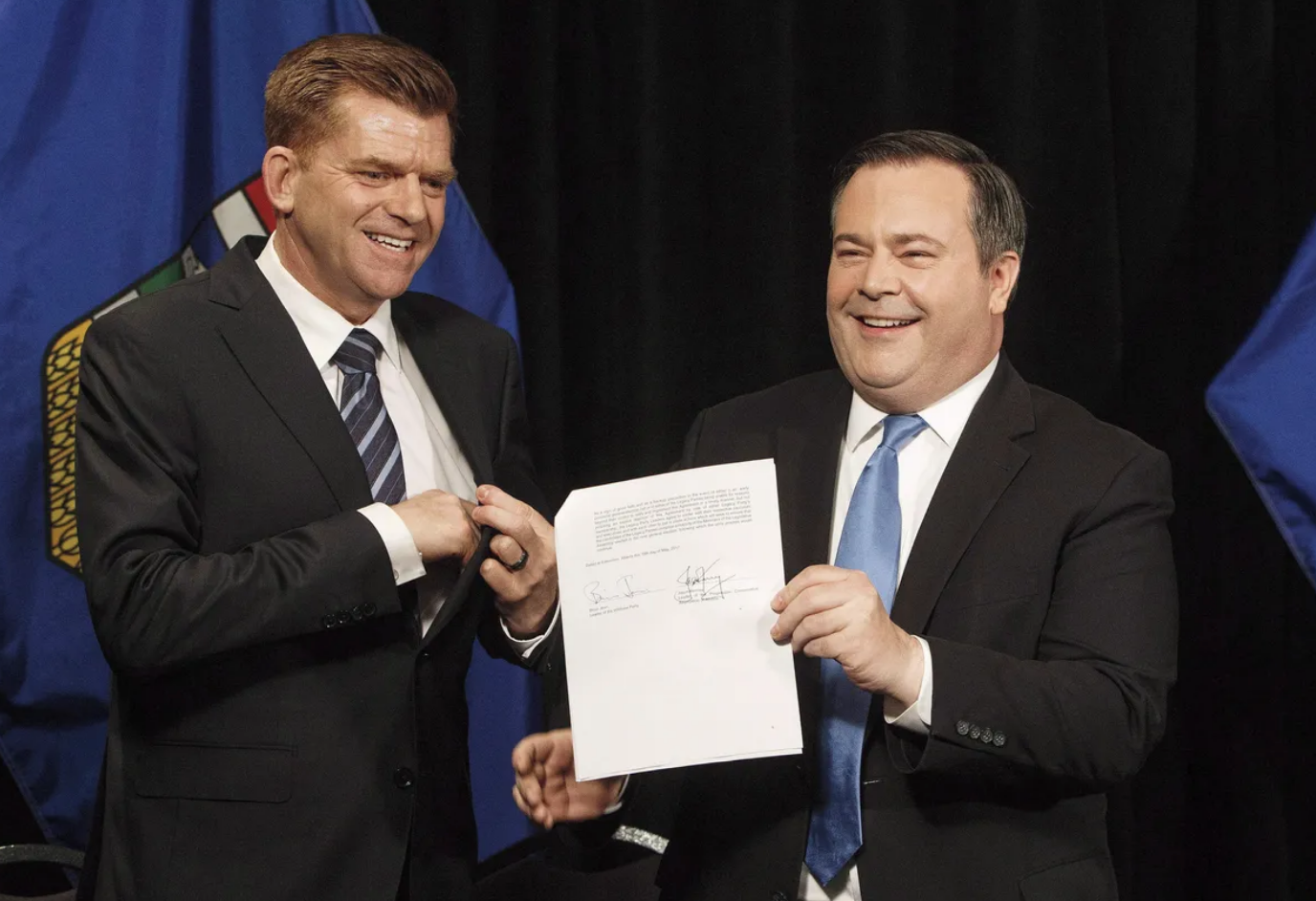
Is Brian Jean going to take down Jason Kenney? And can the United Conservative Party win the next Alberta election?
Those are compelling questions with no certain answers.
Despite what pollsters and pundits are saying, recent events didn’t make the picture much clearer.
Brian Jean, former contender for the UCP leadership and once again Kenney’s most vocal opponent, won the UCP nomination for the Fort McMurray-Lac La Biche by-election. The by-election will happen by March 2022.
Jean took the nomination by 529 votes, compared to Kenney’s preferred candidate Joshua Gogo, who received 250 votes.
Pundits are calling this a landslide and very bad news for Kenney.
How much can be assumed from Jean’s victory remains to be seen, however. The UCP candidate in the last election who’s resignation is prompting the by-election, won more than 9,800 votes in the 2019 general election.
Given the enormous spotlight on the nomination race and Jean’s aggressive and highly publicized campaign, it’s surprising there hasn’t been some musing about the rather paltry turnout for the nomination contest.
Jean is now thumping up and down the province on his campaign to unseat Kenney. He’s turning up in end of year interviews with all the provincial columnists and radio show hosts calling on the premier to resign.
Kenney meanwhile is not shy of the public eye, holding many press conferences on the recent economic upswing and the looming worries about the Omicron Covid strain. But the premier is maintaining a stony silence about Jean’s recent victory in Fort McMurray or his noisy leadership campaign.
While the premier did take a few potshots at Jean early in the Fort Mac race, he largely stayed out of the fray. He may be just hoping Jean will burn himself out.
Technically Kenney, as party leader, could refuse to sign Jean’s nomination papers for the by-election. Or if Jean wins, Kenney could turf him from caucus on the pretext that Jean is a danger to UCP unity. Both scenarios are unlikely, however.
There are enough vocal malcontents in caucus that singling out Jean would be an admission of fear from the premier. Plus the UCP admin folks kept a tight rein on the nomination contest, so trying to declare it invalid might cause even more of a split in the party.
Kenney faces a formal leadership review on April 9. If he were to punt Jean out of caucus right after a by-election victory in March, that too could unleash an even more divisive battle on the April convention floor.
A poll at the beginning of December suggested Albertans might be slightly more willing to vote UCP if Jean were the leader instead of Kenney. But the numbers weren’t startling and Jean still has plenty of time to make a major error, given how visible a target he is making of himself.
Jean may be an irritant, but Kenney so far hasn’t given any hint he’s breaking a major sweat about the threat.
Meanwhile in the past couple of weeks the premier has reversed course on some of his more eye popping policies, perhaps to buoy his own popularity and that of the UCP government.
He tugged a few threads loose on Covid restrictions this week to make Christmas a bit merrier for Albertans, but unlike his “best summer ever” declarations in August, his tone was measured and the changes relatively minor.
The UCP government has had a history of warring with the provincial civil service since the moment it was elected. But quietly this week, the Alberta Union of Provincial Employees signed a tentative deal which will give them job security until the end of next year and modest raises in 2023. It appears the UCP is clearing some of the acrimony out of the arena before the 2023 election campaign begins in earnest.
Kenney isn’t giving up his leadership position without a fight and the UCP is not throwing in the towel just because of historically low popularity numbers. The struggle for both the premier and the party isn’t over yet.
The views, opinions and positions expressed by columnists and contributors are the author’s alone. They do not inherently or expressly reflect the views, opinions and/or positions of our publication.
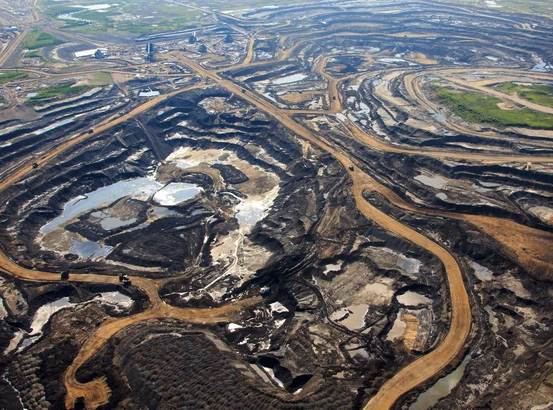
This content is restricted to subscribers
The views, opinions and positions expressed by columnists and contributors are the author’s alone. They do not inherently or expressly reflect the views, opinions and/or positions of our publication.

One day you’re up, next day you’re down. But in Alberta the wheel of fortune does a full 180 in a couple of hours.
Before lunch Tuesday the provincial government announced its finances are in much better shape than expected as high energy prices and returning jobs lift the economy and the government bottom line.
After lunch the provincial medical office of health announced confirmation of a case of the Omicron variant of Covid. That sort of dampened the mood a tad.
However, the fiscal update numbers revealed by Finance Minister Travis Toews are impressive.
Sharply increased oil royalties and tax revenue are expected to trim this year’s deficit to $5.8 billion, considerably better than the stark $18.2 billion deficit that the spring budget predicted.
Usually a second quarter fiscal update doesn’t merit the kind of ballyhoo around Tuesday’s announcement. There is another two quarters to go before the full picture will be evident. A lot can happen between now and tomorrow, let alone between now and next spring’s budget.
But any good news is big news in a province which has been down on its luck for a few years.
Facebook-loving Premier Jason Kenney posted a very slick video full of rising economic fever lines superimposed on photos of happy working Albertans. The catch-phrase “Alberta’s Recovery Plan is working — and we’re only getting started,” is clearly going to be emblazoned everywhere in the next few months.
Kenney can’t be blamed for wanting to take a victory lap. The wrestling of deficits is the meat and potatoes of fiscal conservatives and the premier is happy to take a seat at the festive table.
However, taking credit for the economic good news is questionable. Kenney’s little video weirdly suggests that the deficit is down, revenue is up, 98 per cent of jobs lost since Covid have returned “because we’re holding the line on spending”.
Toews echoed that sentiment, but at least he acknowledged the risk of getting too cocky in a world of pandemic risks and oil price volatility.
Unfortunately for the UCP, what it can actively manage is a pretty small sliver of the actual fortunes of the Alberta economy.
The recent run-up in oil prices account for much of the revenue increase, and that points to Alberta’s reliance on a problematic non-renewable resource which is at the mercy of global price swings.
Days before the fiscal update came out there was a sudden plunge in oil prices.
Without stability in its revenue sources, spending really is the only thing the UCP can manage. And even there, in this pandemic age, there are limitations on just how much of budget expenditures, particularly on the health side, the government really can control.
Covid offered a stark reminder of that with its sudden eruption of a new variant. Omicron is still a mystery in terms of its actual transmissibility and the severity of symptoms, but its very existence still sent a worrying shiver through world markets.
Kenney signalled a few days ago that he was considering some loosening of pandemic restrictions so Albertans can have a merrier Christmas. And certainly most Albertans would love to have more than one other fully vaccinated household visiting for the Yuletide feast or cocktail festivities.
But the ghost of Kenney’s ill-timed decision to open wide in July for “the best summer ever” is haunting the proceedings. Another slowing of the economy because of rising case numbers would pretty quickly erode the upward trajectory on the government’s charts.
It’s evident from a relentless flood of government releases about jobs, deals, drilling and dropping deficits that the UCP government is determined to deflect attention from the uncertainty of the times.
The word “boom” is starting to creep into Kenney’s speeches. But that’s an outdated view of what’s happening in the province today. Far more apt is the term roller-coaster.
It’s nice to see a brief respite to stomach-churning swoops and dives as the economy crests the hill.
But getting off the ride altogether is going to take a strategy to uncouple Alberta from dependence on oil and gas. And a better thought-out longterm strategy for dealing with a pandemic with no end in sight wouldn’t hurt.
The views, opinions and positions expressed by columnists and contributors are the author’s alone. They do not inherently or expressly reflect the views, opinions and/or positions of our publication.
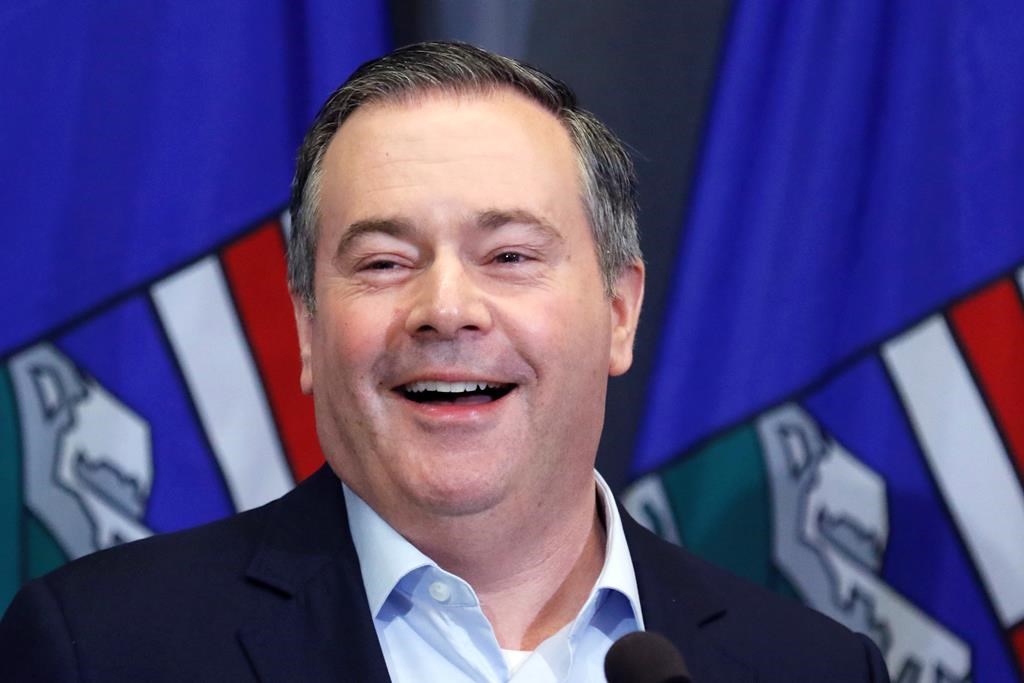
While the fate of the leader of Alberta’s United Conservative Party has been stealing all the headlines, the party itself is facing enormous challenges of its own over the next six months.
The party was mashed together from the Progressive Conservative Party and the Alberta Wildrose Party only four years ago. Now it’s trying to find a way forward as members with deeply divergent backgrounds and views wrestle for control.
Back when he was running for the UCP leadership in 2017 Jason Kenney campaigned on a “grassroots guarantee”.
He said policy would come from party members. He blamed the original conservative movement fracture on “an arrogant, top-down style of leadership” on the part of the governing Progressive Conservatives.
But now he and the party are facing complaints that the UCP has abandoned the grassroots, the leader failed to listen to the membership through the pandemic and the government is making too many policy decisions without consultation.
The UCP board, led by new president Cynthia Moore, is grappling with a fractious membership as it tries to gear up toward the 2023 provincial election.
The first challenge took place last weekend with the annual general meeting. The party avoided a major gunfight, with Kenney receiving a polite reception from the assembled delegates rather than the open insurrection some pundits expected.
Next up is the UCP board’s Dec. 7 meeting. Moore says the board will formally respond to a motion from 22 constituency associations to force an early review of Jason Kenney’s leadership.
Many of the 22 constituencies seeking the early review are rural and are pushing for a wide open vote in February on Kenney’s leadership, with remote ballots allowed.
If the board finds a way to reject the motion, a review will happen in April, but it will be far more controllable, with only in-person delegates allowed to cast a ballot.
The party also has to deal with a fast approaching by-election. Kenney’s most prominent foe, former Wildrose leader Brian Jean, is vying for the UCP nomination in his Fort-McMurray home town constituency.
Jean suggests the show of support for Kenney at the AGM shouldn’t be taken at face value. He says party members believe the UCP can’t beat the NDP in the next election with Kenney at the helm. He is more than willing to step into the breach.
Jean is the magnet attracting former Wildrosers. A seat in the UCP caucus for Jean after the February by-election could embolden the Wildrose faction within the party.
A further complication for the party is Danielle Smith, also a former Wildrose leader who attempted to unite the Wildrose and the PCs by defecting to the PC government caucus in 2014.
Smith, a radio personality in Calgary, announced last week she would consider trying for the party leadership for the sake of UCP unity.
All those balls in the air must be dizzying for a UCP leadership which is also beleaguered by an inability to raise cash. The failure to fill party coffers at the same rate as the opposition NDP is yet another signal of member disenchantment with the current state of the party.
Moore addressed the elephant in the room at the AGM.
“Too many of us have forgotten that we are the United Conservatives. Some of us forget what brought us together and are now focusing on what divides us,” she said.
“Compromise isn’t always easy but is often the right thing to do. We must remember that politics is the art of negotiation and compromise.”
It would help if there was common ground and shared history to use as a base for that compromise. But the UCP is still finding its identity after difficult rifts in Alberta’s conservative movement.
In 2017 Kenney looked like the high powered leader who could push the party to power and enduring success. But, battered by unprecedented political challenges including Covid and oil price crashes, he proved to be a divisive figure.
No matter what the outcome is of the leadership review, the UCP’s struggles aren’t likely to vanish. With or without Kenney the rifts have to be dealt with by the party apparatus. Maintaining any big-tent party is a tough job. Some pretty icy drafts are blowing through the UCP’s makeshift seams.
The views, opinions and positions expressed by columnists and contributors are the author’s alone. They do not inherently or expressly reflect the views, opinions and/or positions of our publication.
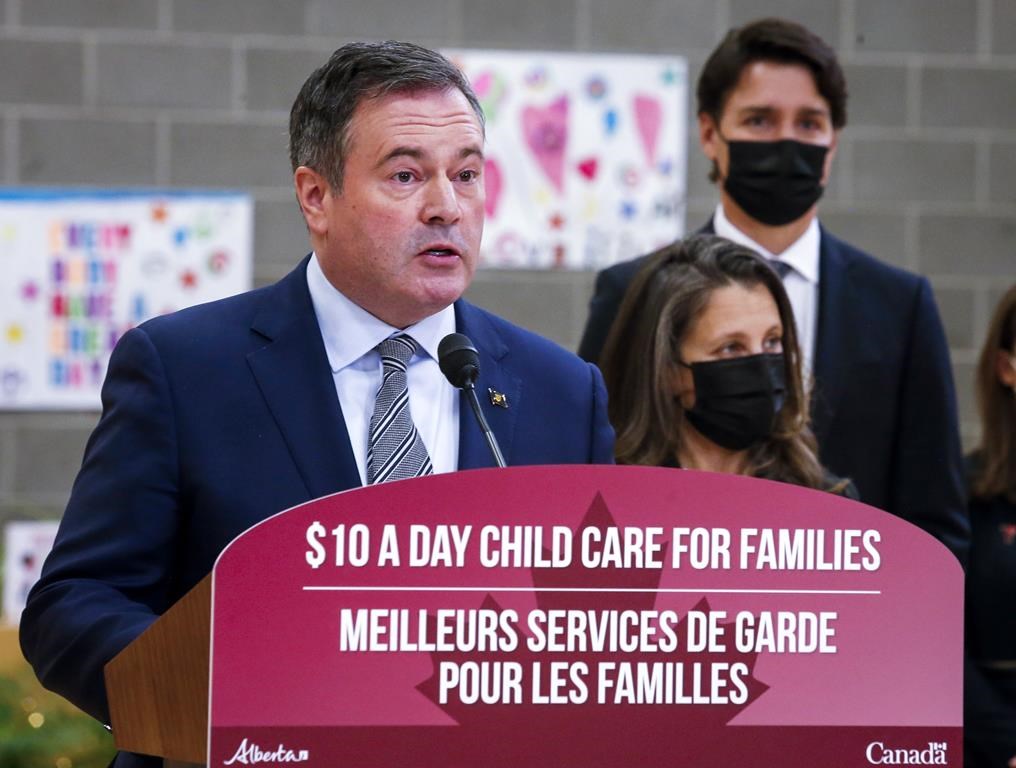
It could have been a lovely moment.
Prime Minister Justin Trudeau ventured into hostile territory this week with a bag of money and handed it to Alberta Premier Jason Kenney, a politician in desperate need of good news.
Here ya go Jason — spread this around to the many families in Alberta who are paying more than $1,000 per month for day care. Take the win — affordable quality day care is great for kids and parents, allows more parents to enter the workforce and frees up disposable income to benefit the entire economy.
Kenney could have taken credit for negotiating a great deal, defending the time it took to ink the agreement as necessary to get the terms just right for Alberta’s special mix of non-profit and profit day care services.
But the premier didn’t leave it at that.
The deep divisions and political baggage between Trudeau and Kenney broke out in a thinly veiled arm wrestling match. Even for a day, Kenney wouldn’t set aside his campaign for “a fair deal” for Alberta to concentrate on a great day care plan for Alberta’s families.
He argued the $3.8 billion was just tax money from Albertans coming back to where it belongs.
The final deal isn’t what he wanted, said the premier. He pressed for a no-strings attached handing over of funds, allowing Alberta to administer it as the government pleased. That would match the deal Quebec received, said Kenney.
“At the end of the day, it’s not the only time where we see what appears to be a two-tier federation,” said the premier.
Trudeau replied that unlike Quebec, Alberta doesn’t have a program that already provides day care at even less than the $10 per day price tag that Ottawa is targeting. If it did, it would get the same deal as Quebec, he argued.
“So let’s not create constitutional conventions out of this. It’s about looking at what families have, what families need, and how we get to $10-a-day child care right across the country, and that’s exactly what we did.”
Kenney accepting the federal largesse without pushback would have handed credit to Trudeau. And in Alberta, where there is still a general dislike of federal Liberals, there would be little political advantage in that.
And to be fair, Trudeau was no shrinking violet in the bizarre press conference exchange. Asked by reporters about the cap on oil and gas emissions he announced at the COP 26 conference, the prime minister managed to tick off the premier by mentioning any number of experts and advisors who are being consulted without any nod to the provinces who actually own oil and gas resources.
Kenney fairly lifted out of his shoes to catch that bait.
All of this is political theatre. And Kenney is not playing to national media or even moms and pops in downtown Calgary and Edmonton.
He is playing to the UCP base. His “fair deal” strategy has become paramount: Talk tough to Ottawa; play the underdog card whenever possible; acknowledge western separatist sentiment without espousing actual separatism.
Increasingly the special status of Quebec is the golden standard Kenney argues Alberta deserves.
There’s a whole other subtext to the government’s reluctance to sign on to the child care deal in the first place. The idea of universally funded not-for-profit day care is not central to the UCP worldview.
No wonder Chrystia Freeland stressed the idea that the economic spinoffs from the program outweigh the cost to the public purse in her remarks at the news conference. Convincing conservatives that social programs spin wealth into the economy is a key selling point for increasing tax spending in this area.
Outside of the direct sparring over Alberta’s rights and place in confederation, Trudeau also tapped the premier on the chin with an oblique remark in answer to a reporter’s question about a challenge to federal Conservative leader Erin O’Toole’s leadership.
The prime minister declined to answer directly, saying “the federal Liberals have never been so united.”
The premier, standing next to Trudeau at the podium, dealing with fractious constituency associations and caucus members, could not say the same of his own party.
The views, opinions and positions expressed by columnists and contributors are the author’s alone. They do not inherently or expressly reflect the views, opinions and/or positions of our publication.
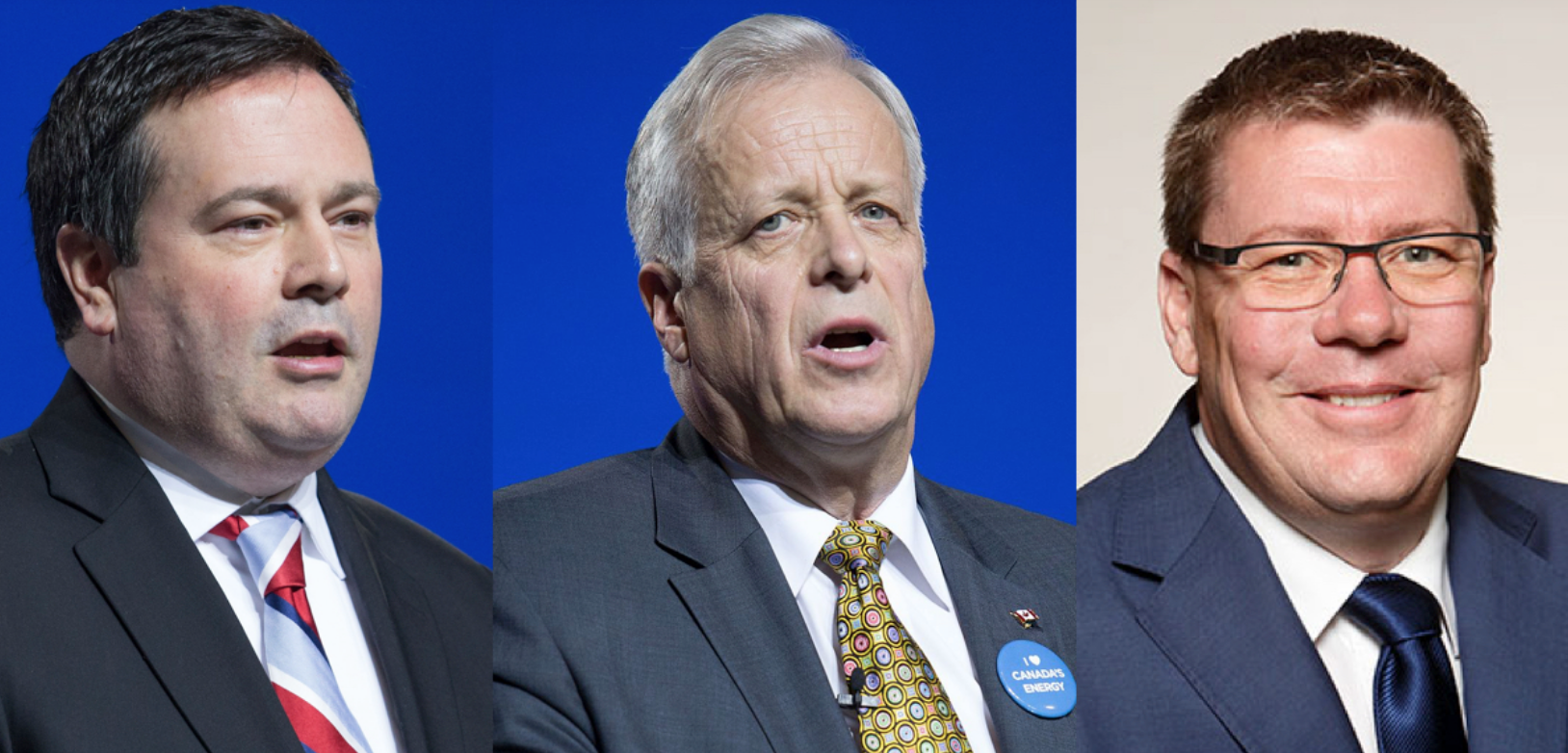
This content is restricted to subscribers
The views, opinions and positions expressed by columnists and contributors are the author’s alone. They do not inherently or expressly reflect the views, opinions and/or positions of our publication.
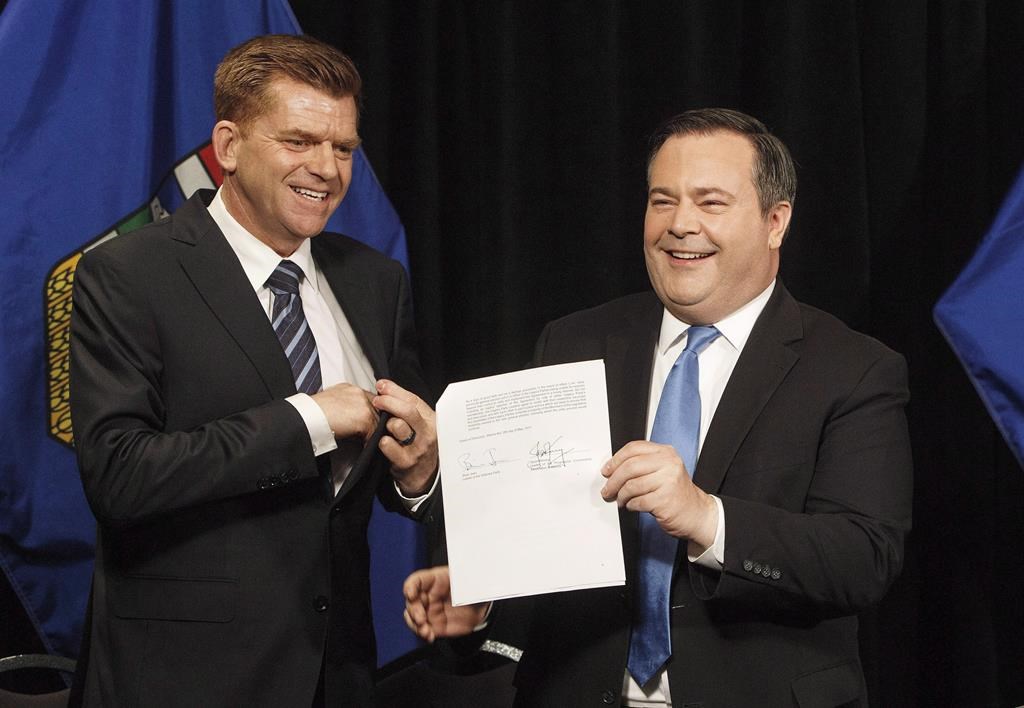
Alberta’s economy rose from the doldrums this week and shuffled into interesting new directions.
The announcement of a big investment by Amazon Web Services in the Calgary region and Silicon Valley tech accelerator Plug and Play establishing a beach head in the province were good news for the UCP government, which has been endlessly criticized for its inability to get off the slowing energy industry train.
The number of news conferences with Premier Jason Kenney suddenly escalated with the unpopular premier happy to finally have good news for skeptical Alberta voters.
But there’s a fly in this healing ointment.
Brian Jean, Kenney’s longtime political rival, is back with a vengeance, aggressively seeking the UCP nomination for an upcoming by-election in Fort McMurray-Lac La Biche.
If he wins the by-election, Jean vows, he will work to dislodge Kenney from the party leadership and seek to take his place.
The grudge between these two is positively Shakespearean.
Kenney and Jean worked together to unite the limping Progressive Conservative and Wildrose Parties into the United Conservative Party.
They wrestled each other and a couple of other wannabes for leadership of the new party. One of the alternate candidates in the race has since been seen as a paper rival designed to push Jean out in Kenney’s favour. Hard feelings over campaign irregularities still linger.
Within four months of Kenney’s leadership victory, Jean stepped down as a UCP MLA. He now claims Kenney ghosted him, making it clear he was no longer welcome. Kenney disputes that, saying he offered Jean just about any role he wanted, but Jean withdrew to take care of family matters.
For the past three years, Jean has been sitting back in his Fort McMurray home, occasionally penning a political column on his webpage about how he would tackle the political challenges of the day.
Gradually those missives became increasingly critical of Kenney until Jean openly called for the premier to step down.
The looming by-election in his home constituency gave Jean an opening to create an enormous amount of mischief for Kenney in the coming months.
Jean has already filed nomination papers with Elections Alberta for the by-election, which must be held by mid February. He is pushing hard for his fans in Fort Mac to buy UCP memberships and support his bid to run for the party.
If he is prohibited from running for the nomination (presumably by Kenney) Jean vows to run as an independent.
The tactic has Kenney backed into a corner. If UCP members in Fort McMurray-Lac La Biche want Jean as their candidate Kenney is pretty well bound to accept that. Jean, who has deep Fort McMurray family roots, would have a good chance of winning the by-election even if he runs as an independent.
Kenney, who is known for his talent as a political brawler, is gearing up for the coming battle. He’s questioning Jean’s reliability, given his resignation from government in 2018 and apparent flirtations with other political partners in recent months.
“I’m not going to be distracted by somebody trying to settle scores with internal political games,” says the dismissive premier.
Jean’s campaign is very much centred on ousting Kenney before the next provincial election which must take place by spring 2023.
“Something must be done,” Jean told a news radio reporter.
“If there isn’t change, Rachel Notley will win an overwhelming majority and her second term will be much worse for Alberta than her first term.”
“Something must be done” is the catchphrase Jean is putting on all his social media appeals to UCP members. No doubt, he’ll be repeating it often right up until Kenney has to face a leadership review in the spring.
Pundits have predicted for years that the sour leadership contest that put Kenney in his current position would come back to haunt the UCP.
Alberta may be on an upswing as investment starts returning to its Covid weary economy, but its governing party is still mired in a past it just can’t seem to shake.
The views, opinions and positions expressed by columnists and contributors are the author’s alone. They do not inherently or expressly reflect the views, opinions and/or positions of our publication.